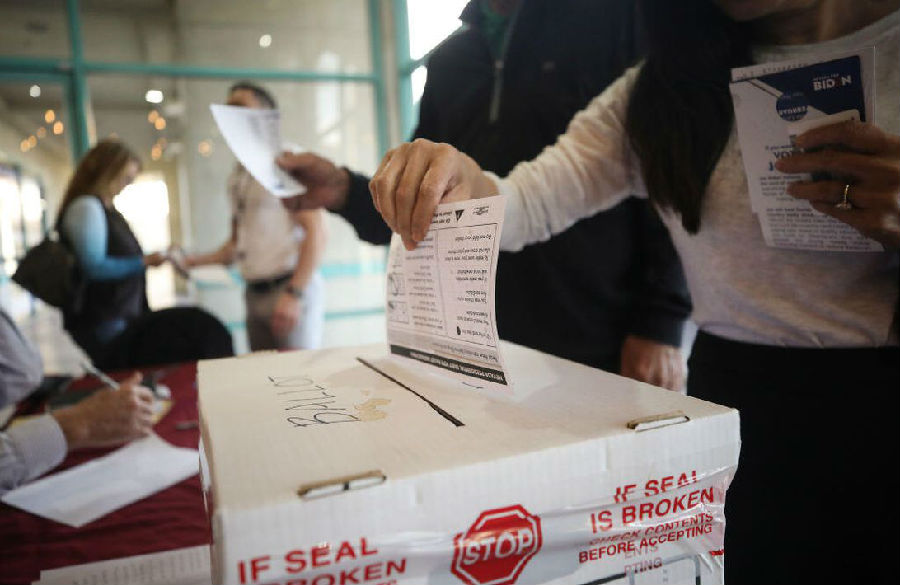Hari Sreenivasan: Both today's Nevada caucuses and next week's primary in South Carolina are bringing the most diverse electorate to the polls so far. Meanwhile, when it comes to gender in their own statehouses, there are stark divides. But that could be changing. I recently spoke with Capri Cafaro, a former Ohio state senator who is currently an executive in residence at American University's School of Public Affairs. First, let's talk a little bit about Nevada. How important is gender in the political context of a state where almost half the legislature are women?
Capri Cafaro: Actually, about 52 percent of Nevada state legislature making them the first in the country to have a female majority state, statehouse. So certainly Nevada has proven to be a leader when it comes to gender equity, gender parity and the electorate's willingness to vote for female candidates. They even have two female United States senators. So obviously, if they're, if history, if past is prologue, gender plays a very critical role in Nevada.
Hari Sreenivasan: What is the secret to Nevada's success in achieving this sort of gender parity in the legislature?
Capri Cafaro: A lot of it has to do with candidate recruitment and the fact that traditionally or historically, western states actually do have a higher number of women that both run and succeed in higher office there. I also think that it's possible, particularly in Nevada, with a very large, prominent and powerful labor union presence out there. So these kind of service industry unions oftentimes do invest a lot in recruitment, retention of women candidates all across the country.
Hari Sreenivasan: So they're able to help in the pipeline and actually encourage more women.

Capri Cafaro: That's right. That's right. Get in at the local level, in the state level. The fact that you have such a big presence of women in a Nevada legislature creates a circumstance whereby you have two United States senators that are female in a place like Nevada.
Hari Sreenivasan: All right. Let's turn the page a little bit. South Carolina, almost the inverse of the situation in Nevada. Now, I should point out, Nikki Haley.
Capri Cafaro: Nikki Haley.
Hari Sreenivasan: Was the governor of that state. Right. So it's not that they have been completely out of it, but that's how does that legislature fare?
Capri Cafaro: Very different from what we see in Nevada, where South Carolina has about a little less than 16 percent of their state legislature is female. They have no women representing them at the federal level either. You did mention former Governor Nikki Haley. So it is not without female presence, but there is absolutely an absence of female representation within their federal delegation and a very small number of women serving at the state level. Very similar to places like Tennessee, Alabama, West Virginia, Mississippi. So, again, not out of the of the norm in the number of southern states.
Hari Sreenivasan: How much of this has to do with parties and their ability to recruit? I mean, is there a stronger recruitment pipeline when it comes to, say, labor unions in Nevada versus what the Republican Party is doing and how they're encouraging women to get in on the ground floor?
Capri Cafaro: Right. Well, there always has been a historic disparity between women running as Democrats versus women running as Republicans. You know, there were such high volumes of women running on Democratic tickets that that also resulted in women increasing their numbers in Congress in the midterm elections. Because of that, Republicans are stepping up their game and candidate recruitment of women all across the country in congressional races. South Carolina, one that is currently held by a freshman Democrat who is a man. And there are two women, actually Republican women running in the primary to try to unseat the current incumbent Democrat in South Carolina, won. It very well may be that we'll see a South Carolina congressional district represented by a woman potentially this year.
Hari Sreenivasan: All right. Capri Cafaro, executive in residence at the American University School of Public Affairs. Thanks so much for joining us.
Capri Cafaro: Thank you very much.












